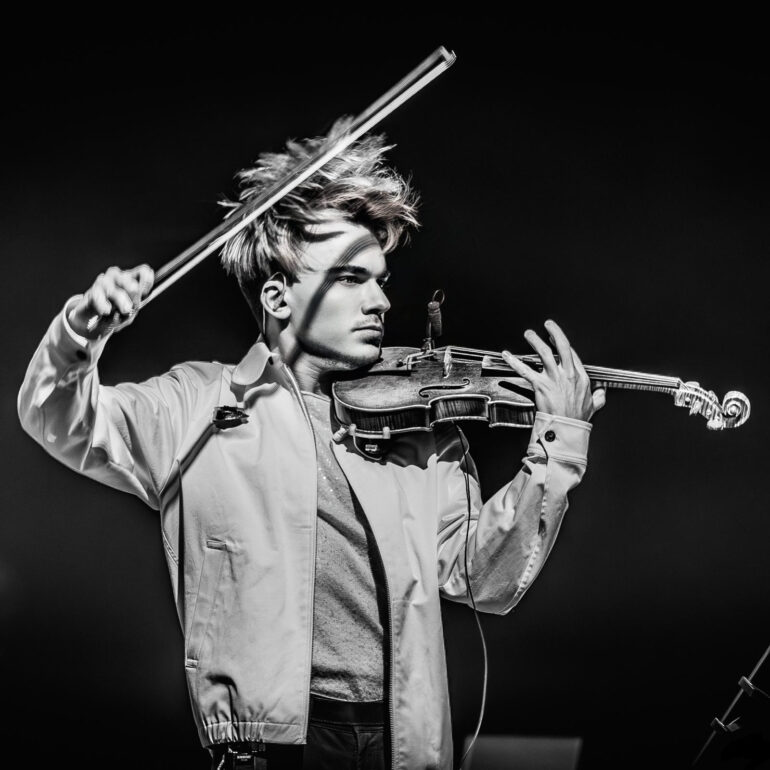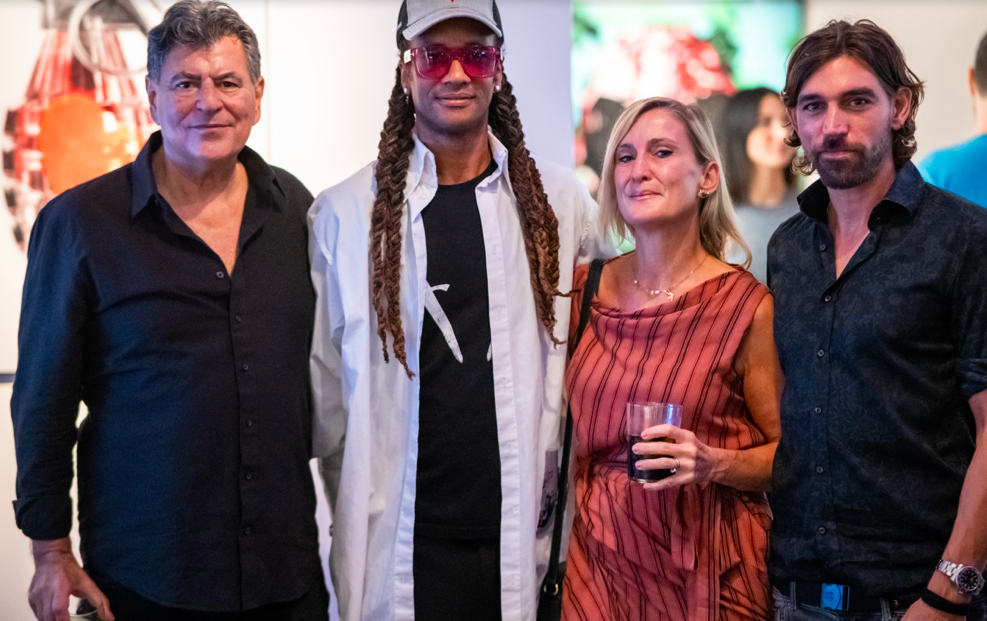In the lead-up to his highly anticipated Firebird Festival Night, world-renowned violinist, composer and interdisciplinary creator , Yury Revich joins Culturalee for an intimate conversation that explores the heart of his artistic vision and the evolving landscape of modern performance. Revered for his technical brilliance and unmistakable emotional depth, Revich opens up about the creative forces shaping his work, from the dynamic collaborations that define his festival ethos to the narrative power he channels in interpretations such as the Kreutzer Sonata, where story and sound intertwine.
We discuss the foundations of Revich’s musical identity, the spirit of innovation that propels his programming, and the personal and global resonances he seeks to evoke on stage. Revich reflects on the emotional architecture of performance, the universal threads that connect audiences worldwide, and the enduring legacy – ,both cultural and communal – of festival nights that transcend the concert hall.
What emerges is a portrait of an artist who not only performs music but reshapes its possibilities: weaving narratives, forging connections, and building the future of musical storytelling one festival at a time.
The Firebird Festival Night brings together such distinctive creative voices , yourself and legendary actor Simon Callow. How did this collaboration come about, and what excites you most about merging these different art forms , music, literature, and storytelling into one performance?
I’ve worked several times with the Firebird Orchestra and have always admired their drive, curiosity, and talent. I’ve always felt a bit like a Renaissance artist, I don’t believe creativity should be confined to a single form or discipline. Art in all its expressions, music, theatre, visual art, dance, speaks a universal language. Each form feeds and inspires the other. Music, in my view, remains one of the purest forms of artistic expression, it can’t be seen or owned, only experienced. Visual art, on the other hand, has become highly influenced by markets and investment trends, and that sometimes distances it from its original purpose. But at its best, visual art is deeply moving and incredibly powerful; it creates emotional architecture for the imagination. That’s why I’m drawn to interdisciplinary creation , combining music with live performance, visual and digital art, dance, and theatre. I love to build multi-sensory worlds where sound and vision coexist, transforming how we experience both.
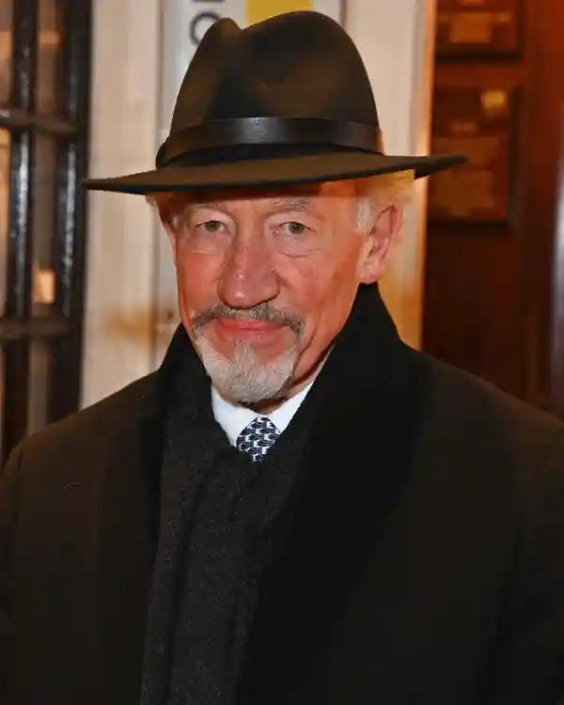
The centrepiece of the evening is your arrangement of Beethoven’s Kreutzer Sonata for violin and string orchestra, intertwined with readings from Tolstoy’s novella. What drew you to explore this dialogue between music and literature, and how do you approach translating emotional tension from page to sound?
I’ve always loved literature, and Tolstoy’s Kreutzer Sonata is one of those works that grabs you completely, it’s raw, emotional, and psychologically intense. Beethoven’s sonata is the perfect musical counterpart, it’s almost symphonic in scope and power. In this project, we reimagine Beethoven’s piece for violin and string orchestra, giving it new colors and depth while staying true to its spirit.
I also write poetry myself, so I understand the rhythm and music of words. A great actor like Simon Callow doesn’t just read text, he performs it as music. This combination of spoken and played emotion creates a new kind of storytelling.
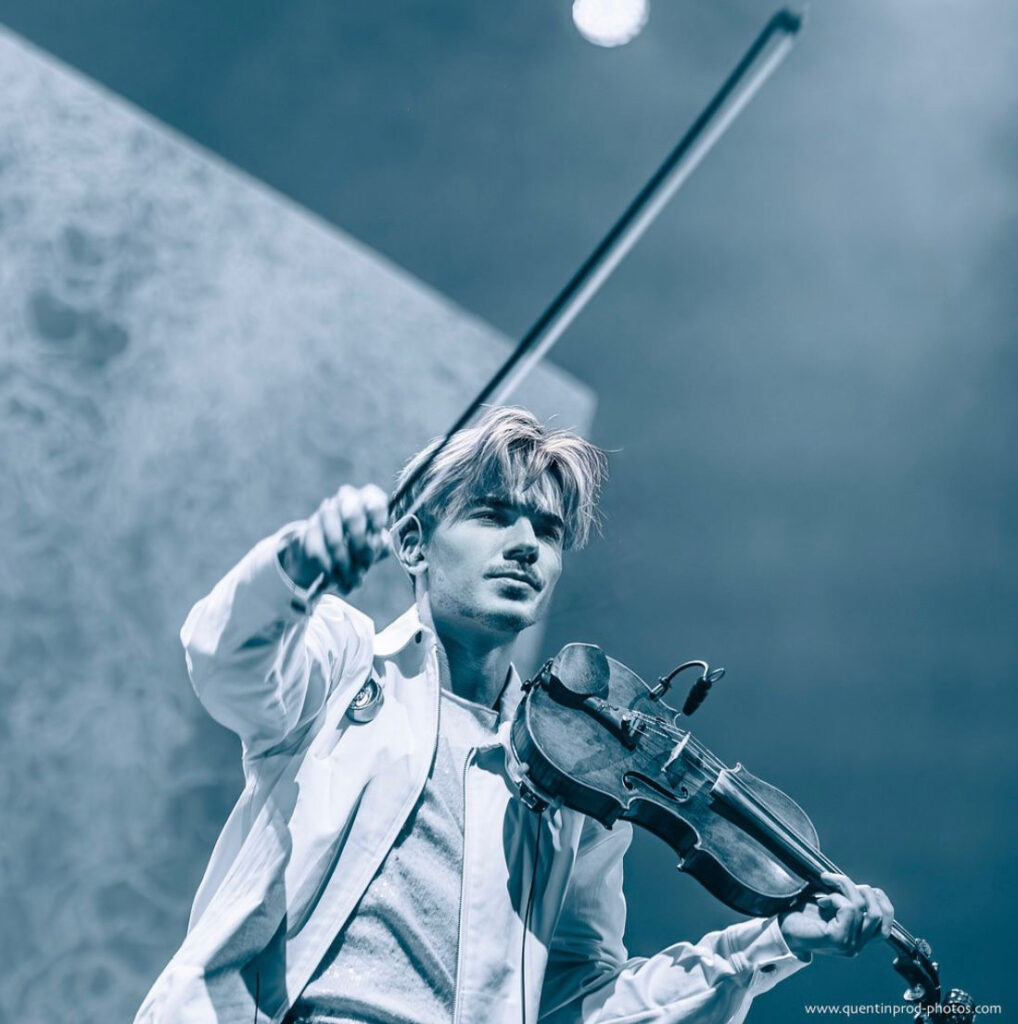
You’re celebrated for blending tradition with innovation, from reimagining classical works to composing your own. How do you balance reverence for the classical canon with your drive to innovate and tell new stories through music?
For many years, I performed the great works of others. At some point, I felt an urge to speak in my own voice to compose music that reflects my personal vision and emotional landscape.
When I perform Mozart or Beethoven, I’m interpreting someone else’s language, thoughts, translating them through my own sensibility. But when I compose, it’s my own language, my voice. That’s the most direct and honest form of expression I can imagine. Both sides are essential, interpretation and creation, but composing allows me to open a window into my inner world.
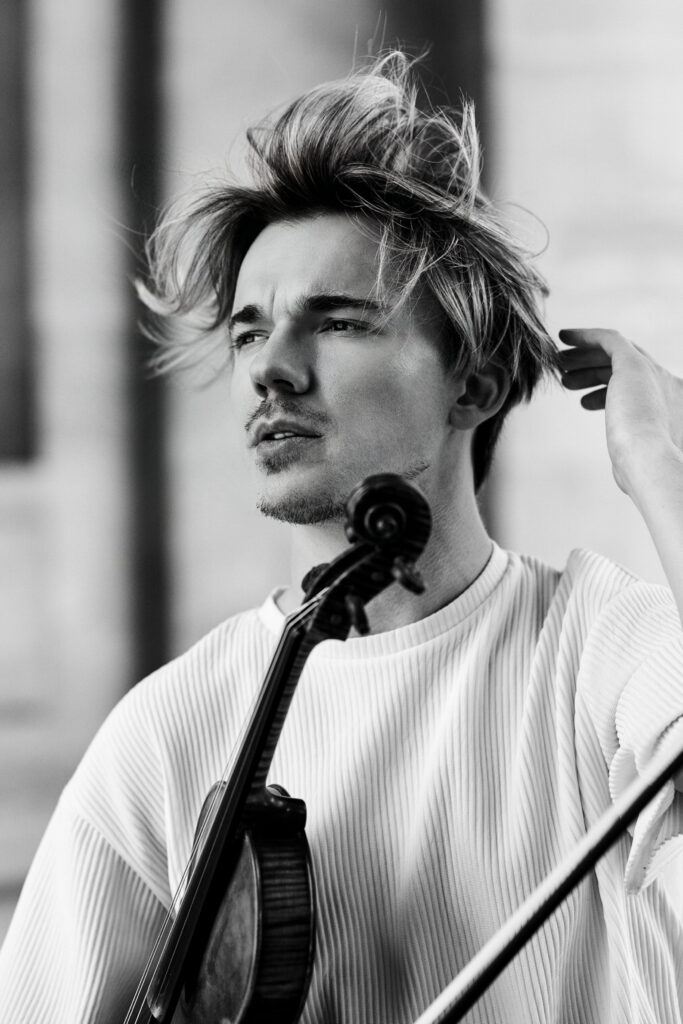
Your performances often carry a strong emotional and humanitarian dimension, reflected also in your role as a UNICEF Austria Honorary Representative. How does your global engagement and social awareness influence your artistry and connection with audiences?
I see music as a bridge, not only between cultures but between people’s hearts. Through my project DREAMLAND, we’ve supported UNICEF in building schools, delivering emergency aid, and helping children in need. Music is far more than entertainment; it’s neuroscience, diplomacy, and empathy in action. I’ll also be chairing a cultural diplomacy project at the European Parliament this November, exploring how music can serve as a form of soft power, a tool for peace and dialogue.
Science has shown that music profoundly affects the human brain. It’s one of the most powerful tools we have for emotional healing and connection, something I try to bring into every performance.
The Firebird Festival Night is part of your wider Festival Nights series, known for creating immersive, interdisciplinary experiences. How do you envision the evolution of Festival Nights in the coming years, and what role do you think such collaborations play in shaping the future of classical performance?
The future of culture lies in collaboration, not competition. With the rapid rise of AI , which I view with both fascination and caution , it’s more important than ever for artists to work together and preserve the human essence of creativity. The mission of Festival Nights has always been to build bridges: between disciplines, generations, and cultures. It’s about creating experiences that are alive, collaborative, and emotionally resonant and about reimagining classical performance as something inclusive, forward-looking, and deeply human.
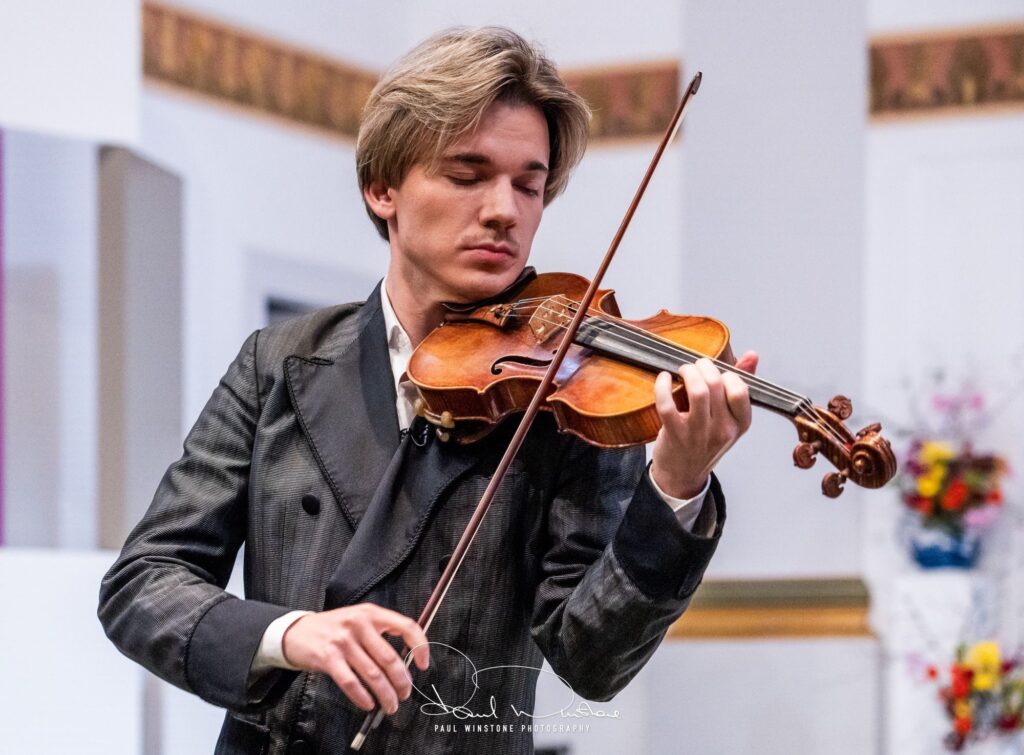
You come from a long line of acclaimed violinists, and your musical lineage stretches back to the 19th century. You began playing the violin at five, making your Carnegie Hall debut at eighteen alongside Daniil Trifonov. Growing up within such a rich family tradition of violinists, do you feel a sense of responsibility to carry that legacy forward and perhaps inspire new generations in your own way?
Yes, very much so. My great-grandfather, grandfather, and father were all violinists. My first teacher was my grandfather, and later my father , who remains my most honest mentor.
I gave my first concert at five, and I remember it being pure joy. I also played piano and loved painting, which I studied as well. From the beginning, I knew that art, in any form, was my natural language. I hope my journey can inspire others, but I also believe that talent can come from anywhere.
Many extraordinary artists don’t come from musical families at all. What matters is that creativity is recognized and supported ,by family members, teachers, and friends. That’s how the next generation of artists finds its voice.
for more information please visit https://www.londonfirebird.com


